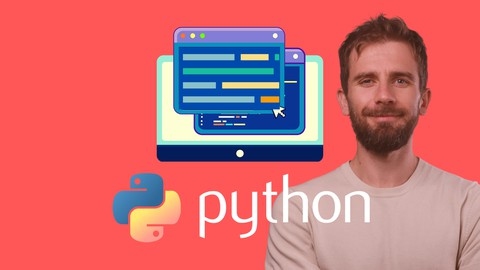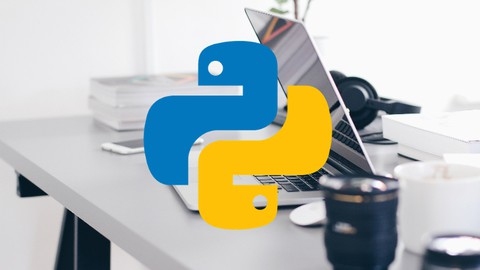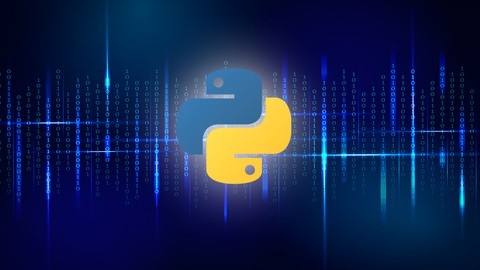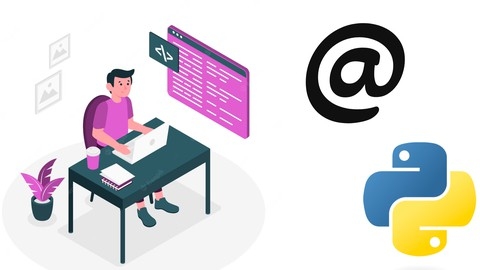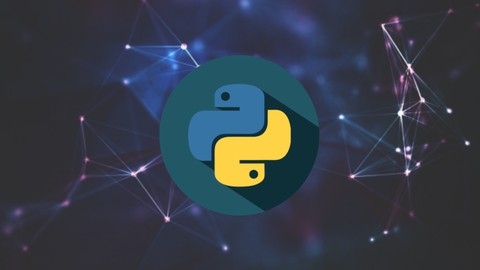Intermediate Python builds upon the foundational concepts of variables, data types, and control flow, delving into more advanced topics that empower you to write efficient, reusable, and robust code.
This includes object-oriented programming (OOP), working with modules and libraries, and understanding concepts like decorators and generators.
By mastering intermediate Python, you’ll be equipped to tackle complex programming challenges and develop sophisticated applications.
Finding the right intermediate Python course can feel like navigating a jungle of options.
You’re searching for a course that not only reinforces your existing knowledge but also pushes you beyond the basics, offering practical projects and real-world applications to solidify your understanding.
You need a course that bridges the gap between beginner tutorials and advanced specializations.
Based on our in-depth analysis, the best overall course on Udemy for intermediate Python learners is Intermediate to Advanced Python with 10 OOP Projects.
This course provides a hands-on learning experience with a focus on object-oriented programming, guiding you through the development of ten diverse projects.
This practical approach reinforces theoretical concepts and equips you with the skills to build real-world applications.
However, if you’re looking for a course with a different focus or teaching style, there are other excellent options available.
Keep reading to discover our curated list of top intermediate Python courses on Udemy, tailored to various learning preferences and specific skill development goals.
Intermediate to Advanced Python with 10 OOP Projects
You’ll dive straight into building a Geometry Game, learning the core concepts of object-oriented programming (OOP) like creating classes, using “self,” and defining methods.
This practical experience solidifies your understanding from the get-go.
You’ll then build a Flatmates’ Bill Sharing app, expanding your skills by working with external libraries, generating PDFs, and creating a command-line interface (CLI).
You’ll even learn how to deploy this app on Replit, a valuable skill for sharing your work.
This project reinforces OOP principles and shows you how to plan an application before writing any code.
The course continues to build your expertise with increasingly complex projects.
You’ll create a Math Painter app, working with image manipulation libraries, and a Webcam Photo Sharing app using Kivy for graphical user interfaces (GUIs).
These projects provide practical experience with image processing, camera input, and creating user-friendly interfaces.
You’ll then develop a Flatmate’s Bill Web App using Flask, learning about web forms, user data processing, and CSS styling.
You’ll deploy this web app on PythonAnywhere, gaining experience with server-side programming.
You’ll tackle even more advanced concepts with a Calories app involving web scraping, followed by an Automated Emails app where you’ll send emails programmatically and work with news feeds.
You’ll then build an Instant Dictionary web app using Quasar and create a Cinema Booking app with a full API implementation.
You’ll also explore databases, use Git and GitHub for version control, and learn to publish your own Python package to PyPI.
Throughout this course, you’ll use PyCharm as your IDE and follow best coding practices, including PEP 8 style guidelines and effective debugging techniques.
This course provides a comprehensive learning experience that builds upon your beginner Python skills, taking you to the intermediate level and preparing you for real-world projects.
Python Programming Beyond The Basics & Intermediate Training
You’ll begin this Python journey by diving into iterators.
You’ll learn how to build them from simple sequences like tuples and lists, and handle exceptions like StopIteration.
You’ll also master looping through iterators and even create your own using generator functions and the yield keyword.
This hands-on experience will solidify your understanding of how iterators work under the hood.
You’ll also explore crucial concepts like global and local scope within functions, including nested functions and the use of the global keyword.
This will help you write cleaner, more efficient code.
Plus, you’ll learn advanced string formatting with string.format(), using both indexed and named indexes.
Next, you’ll tackle regular expressions (RegEx).
You’ll learn how to search for patterns within strings, split strings based on matches, replace text, and even pinpoint the start and end locations of those matches.
The course covers practical scenarios like handling cases where no matches are found, controlling the number of replacements, and searching for specific characters like whitespace.
This will give you a powerful toolkit for working with text.
You’ll then explore generators, creating both simple generator functions and generator expressions, which are more concise ways to create iterators.
You’ll then move into more advanced Python topics.
You’ll explore the collections module, learning about namedtuple for creating tuple-like objects with named fields (remembering the order of keys is important!) and the deque object.
You’ll also gain valuable experience building your own Python packages, learning how to structure them, import modules correctly (like using from package to main), and install them globally on your system.
This is a key skill for any aspiring Python developer.
From there, you’ll delve into decorators.
You’ll first learn about higher-order functions, which are functions that can return other functions.
This forms the basis for understanding how decorators work.
You’ll discover how to create and use decorators to add functionality to your existing functions, using a special symbol and naming convention.
The training even covers how to handle potential errors, like ZeroDivisionError, within your decorated functions and how to create decorators that accept parameters.
Finally, you’ll explore Python’s capabilities in mathematics and statistics and enjoy a bonus lecture with additional advanced techniques.
Intermediate Python Immersive Training | Boost your career
You’ll start with Python Iterators, working with tuples like fruitstuple and strings.
You’ll use loops and learn about the StopIteration exception, building a strong base for later concepts.
This sets you up to create your own iterators, a valuable skill for any Python programmer.
Next, you’ll dive into Coding Regions and the importance of scope.
You’ll master local and global variables, learning how to use the global keyword to control their behavior.
This knowledge is key for writing clean, efficient code.
You’ll also get hands-on experience with Awesome String Formatters, using placeholders and named indexes to create clear, readable strings.
The course then moves into Generators, a powerful tool for memory-efficient Python.
You’ll build generator functions using yield, and you’ll learn to use generator expressions for compact, efficient code.
This section significantly improves your ability to write high-performing applications.
From there, you’ll tackle Regular Expressions in Python 3.9.0.
You’ll learn the regex function, metacharacters, special sequences, and how to use findall to efficiently search and manipulate text.
You’ll also learn to work with match objects and control the number of search results, gaining a powerful skill highly valued in today’s data-driven world.
You’ll then explore Python’s Built-in Modules, including sys, math, statistics, collections, and the random module.
You’ll learn about OrderedDict, namedtuple, and deque, expanding your toolkit for different programming tasks.
You’ll also level up by learning how to create your own Python Packages using the __init__.py file, an essential skill for organizing and sharing your code.
The course even includes a bonus section on the Fibonacci sequence, adding a fun, practical application of your new Python knowledge.
Beyond Basic Programming - Intermediate Python
You start this intermediate Python journey by setting up your coding environment with Jupyter Notebook.
This makes writing and running Python code easier.
You then dive into crucial tools like logging, essential for finding and fixing errors in your code, and Test-Driven Development (TDD), which helps you build reliable programs from the ground up.
You’ll put these concepts into practice with exercises designed to solidify your understanding.
You then explore core intermediate Python concepts.
You learn how to work with list mutability and deep copying, understanding how Python manages data in memory.
You discover generators, a powerful tool for writing memory-efficient code, and work through a case study showing how to use them effectively.
You also explore higher-order functions like callbacks, decorators (including the Memoize decorator), and context managers, adding advanced techniques to your programming toolkit.
Practice activities reinforce your understanding of each concept.
Next, you dive into parallel and asynchronous programming.
You learn about multithreading, how to run multiple tasks seemingly at the same time, and how to tackle synchronization issues using locks.
You’ll also master asynchronous programming with asyncio, using async and await to write highly efficient programs.
Dedicated practice activities help you solidify your understanding of these concepts.
You also delve into functional programming with map, filter, and reduce, providing a new perspective on code structure.
You then move on to practical applications like data visualization, learning how to create plots with a specific case study to guide you.
Finally, you learn how to use regular expressions (RegExp) for matching patterns and manipulating text.
You’ll learn how to construct modular regular expressions and extract matched strings, techniques valuable for tasks like data analysis and text processing.
You will practice using RegExp through dedicated activities.
You finish equipped with the skills to write efficient, well-tested, and robust Python code.
Python Coding Intermediate: Python Classes, Methods and OOPs
You start this Python journey by setting up your coding environment on your Windows, Linux, or Mac computer.
You’ll also learn how to find any pre-requisites and ask good questions—essential for smooth learning.
You’ll then dive into classes and objects, the building blocks of object-oriented programming (OOP).
You’ll learn to create classes, work with class parameters, and call class objects.
You’ll also explore access modifiers (public, protected, private), which control how you interact with your code.
Next, you’ll discover methods.
You’ll learn to create methods with parameters, use default parameters, handle multiple parameters, and understand the all-important return keyword, as well as method overloading.
This sets you up perfectly for the next stage: object-oriented programming (OOP) principles.
You’ll explore inheritance, where classes inherit properties from each other, and polymorphism, where objects behave differently in different situations.
You’ll also get hands-on practice with getter and setter methods and take two assessment tests to check your understanding.
You’ll then learn about encapsulation, which bundles data and methods that operate on that data, and abstraction, which simplifies complex systems by hiding unnecessary details.
You then get to apply your newfound OOP knowledge by building Python games, like a dice game and a card game.
This is a fun way to solidify your understanding.
The course then moves into modules and packages, essential tools for organizing and reusing your code.
You’ll learn to install packages using pip, work with built-in modules, and create your own modules and packages.
You’ll also learn to work with data using the Pandas library, enabling you to read and write CSV files.
Finally, you’ll tackle error and exception handling.
You’ll learn about different types of errors and how to use try, except, and finally blocks to handle them like a pro, even creating your own user-defined error messages.
You’ll also learn about generative AI and what source code is, rounding out your intermediate Python skillset.
Python Programming for Beginners to Intermediate
You’ll start with the basics, learning about variables, data types (like numbers and strings), and simple operations.
You’ll discover how to define variables to store information and use comments to explain your code.
You’ll also learn about different number formats and how to convert between them (type casting), preparing you to work with various kinds of data.
The course then introduces you to getting user input, essential for interactive programs, and string handling, which allows you to work with text.
From there, you’ll explore core data structures: lists, tuples, sets, and dictionaries.
You’ll learn how to add, remove, and copy elements within these structures, essential for organizing data in your programs.
You’ll discover how to use lists for ordered collections, tuples for immutable sequences, sets for unique elements, and dictionaries for key-value pairs.
This knowledge is crucial for building efficient and well-structured programs.
Next, you’ll dive into control flow with if statements, different switch-case implementations, and loops (for and while).
Using the range() function with loops will help you write efficient, iterative code.
You’ll then learn about functions, a fundamental concept for creating reusable blocks of code.
You’ll explore functions with variable arguments, anonymous functions (lambda functions), and how to use the return statement with different data types like lists and dictionaries.
The course also covers recursion, a powerful technique for solving problems by breaking them down into smaller, self-similar subproblems.
The course then introduces object-oriented programming (OOP) with classes and objects, the __init__ function (constructor), object methods, and the self parameter.
You’ll delve into inheritance, learning about single, multilevel, hierarchical, multiple, and hybrid inheritance – all essential for building complex, maintainable applications.
You’ll then learn about exception handling using try, except, else, and finally blocks, essential for creating robust programs that can handle errors gracefully.
Finally, the course covers file handling (creating, reading, writing, deleting, searching, renaming, copying, and splitting files), and working with modules, both built-in and user-defined.
This allows you to organize your code, reuse existing functionalities, and extend Python’s capabilities.
You’ll even learn how to create your own modules.
Intermediate Python: Master Decorators From Scratch
This course takes you on a journey from the basics of Python functions all the way to mastering decorators.
You’ll start with a quick function review, including how to use *args and **kwargs to handle flexible arguments.
You’ll tackle the “Averaging Grades” challenge to test your initial skills.
The course then introduces higher-order functions—functions that work with other functions—and first-class functions, laying the groundwork for understanding closures.
You’ll solidify your knowledge with challenges like “Arithmetic HOF” and “Counter Factory.”You’ll then dive into decorators, learning how to use the @ symbol and how to decorate functions with parameters.
Practical challenges like “Let’s Log” and “Writing a Timer” provide hands-on experience.
As you progress, you’ll explore more advanced techniques like chaining multiple decorators, crucial for complex tasks.
The “Lotto Draws” and “Repeated Lotto Draws” challenges demonstrate this.
The course also teaches you how to use @wraps to preserve function identity, an important detail for maintainability.
Finally, you’ll tackle real-world applications of decorators.
You’ll build a complete authentication workflow in the “Authentication Workflow Part I & II” challenge, putting your skills to the ultimate test.
You’ll also explore caching systems and complete the “Building a Cache” challenge, which teaches you how to optimize your Python code.
Throughout this course, each challenge comes with complete solutions to guide you if you get stuck.
This course equips you with practical experience using decorators to streamline and enhance your Python programming abilities.
Intermediate Python: Memory, Decorator, Async, Cython & more
You’ll begin with a solid Python refresher, setting up your coding environment in Visual Studio Code and revisiting core data types like integers, floats, booleans, and strings.
You’ll learn how to use f-strings for cleaner code and the match-case statement for efficient conditional logic.
Crucially, you’ll grasp memory management, understanding how Python handles variables and references, mutability, and the difference between shallow and deep copies.
This sets the stage for writing more efficient and less error-prone code.
You’ll then explore Python’s powerful data structures: lists, tuples, dictionaries, and sets.
You’ll master working with strings, files, and the file system – essential for handling data in your programs.
The course then dives into functions, teaching you how to use *args and **kwargs for greater flexibility and how closures and decorators can make your code more elegant and reusable.
Next, you’ll tackle object-oriented programming in Python.
You’ll learn about static methods, class methods, abstract methods, and properties, along with advanced concepts like method resolution order, the nuances of __init__ and __new__, and the power of context managers, iterators, and generators.
You’ll also work with helpful tools like dataclasses, slots, namedtuples, typed dictionaries, and enums for better data management.
Finally, you’ll delve into performance optimization.
You’ll learn to use Cython, Numba, and Mypyc to speed up your Python code.
You’ll also explore CPython, Pybind11 (for interfacing with C++), and benchmarking techniques.
The course culminates with concurrency and parallelism, teaching you about threads, processes, the Global Interpreter Lock, thread pools, process pools, and the asyncio library for asynchronous programming.
You’ll understand when to use each approach and how to write highly efficient and responsive applications.
